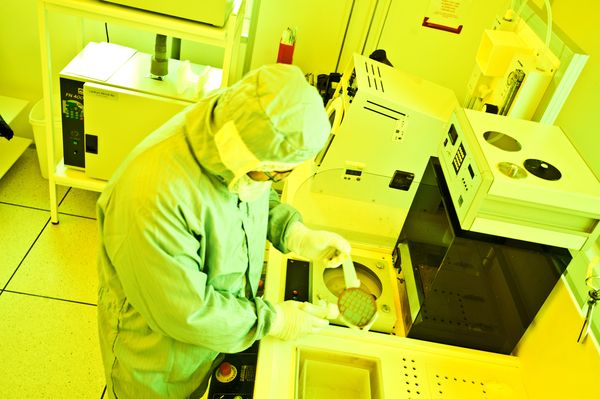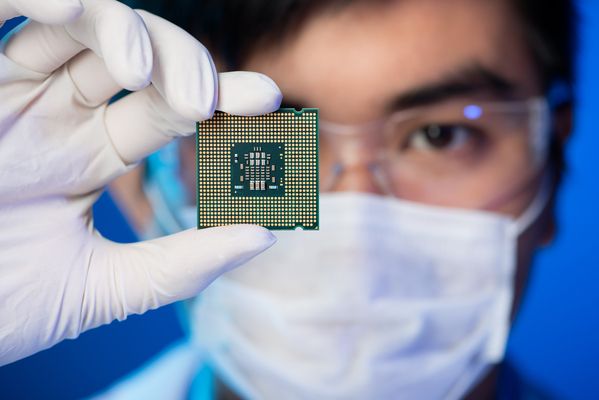The coronavirus outbreak in China is turning out to be a challenge for a wide swathe of companies. Several big names in the tech sector have blamed the outbreak for negatively affecting their businesses. Smartphone giant Apple, for instance, recently slashed its revenue guidance as iPhone sales in China are expected to take a hit due to store closures driven by coronavirus concerns.
Not surprisingly, chipmakers dependent on smartphones, automotive, communications, and other businesses with China exposure have been in limbo. Analog Devices (ADI +1.38%) is the latest to join this bandwagon as the company had to reduce its second-quarter revenue estimate by $70 million to account for the potential business impact.

Image source: Getty Images.
Analog takes a hit, but investors remain upbeat
The end-market conditions looked ripe for Analog Devices to make a comeback this year after its businesses suffered in 2019 thanks to the restrictions imposed on Huawei by the U.S. government. The company was banking on the deployment of 5G (fifth-generation) wireless networks to boost its communications business in 2020 and beyond, but that might be pushed out now.
On the latest earnings call, management said the coronavirus outbreak is expected to reduce the company's revenue by $70 million during its fiscal second quarter. The chipmaker is looking at $1.35 billion in revenue for the period, which would be a decline of nearly 12% from the prior-year period.
This doesn't paint a good picture for the company as revenue was down 15% annually during the fiscal first quarter as well. But the company's tepid results and shallow outlook didn't deter investors from bidding up the stock as much as 7% as management painted a bullish overall picture about the direction in which the company's business is moving.
"Encouragingly, demand across our end markets has stabilized and is beginning to show signs of improvement as we enter our fiscal second quarter," CEO Vincent Roche said.
The company also pointed out that it is witnessing "weaker demand" because of the Chinese New Year. It also sees the possibility of a delay in 5G rollout, which will impact the company's communications business.
Despite all these negatives, investors are giving the company some leeway this time. That's not surprising considering that Analog sweetened the deal for investors with a 15% quarterly dividend hike, coming in at the high end of its 7% to 15% guidance range.
The impressive payout increase is not surprising, considering Analog is focused on returning all of its free cash flow to investors through dividends and share repurchases. The good thing is that Analog has managed to keep its free cash flow at a stable level in the past year, despite a declining top line, through its focus on cost controls.
Analog's operating expenses were down 8% year over year last quarter. The company is looking at another $50 million in annualized savings this fiscal year on the cost of goods sold and operating expense fronts, which should help mitigate the impact of near-term revenue challenges on the bottom line to some extent.
But Analog investors shouldn't forget the fact that the stock is valued richly right now, especially considering the headwinds it faces.
Are investors getting too optimistic?
Even after the historic broad market decline last week, Analog Devices stock is currently trading at a trailing price-to-earnings ratio of nearly 34, which is significantly higher than the five-year average of 30. Looking ahead, the stock also trades at 23 times forward earnings estimates, again topping the five-year average multiple of just 19.
For fiscal 2020, analysts estimate Analog Devices' top and bottom lines will decline this year, so it remains to be seen how the chipmaker manages to sustain its rich valuation. If Analog Devices disappoints investors in the upcoming quarters, don't be surprised to see this tech stock pull back substantially.
As such, investors should wait for Analog Devices' end-market improvements to actually reflect on its financial performance before going long.





